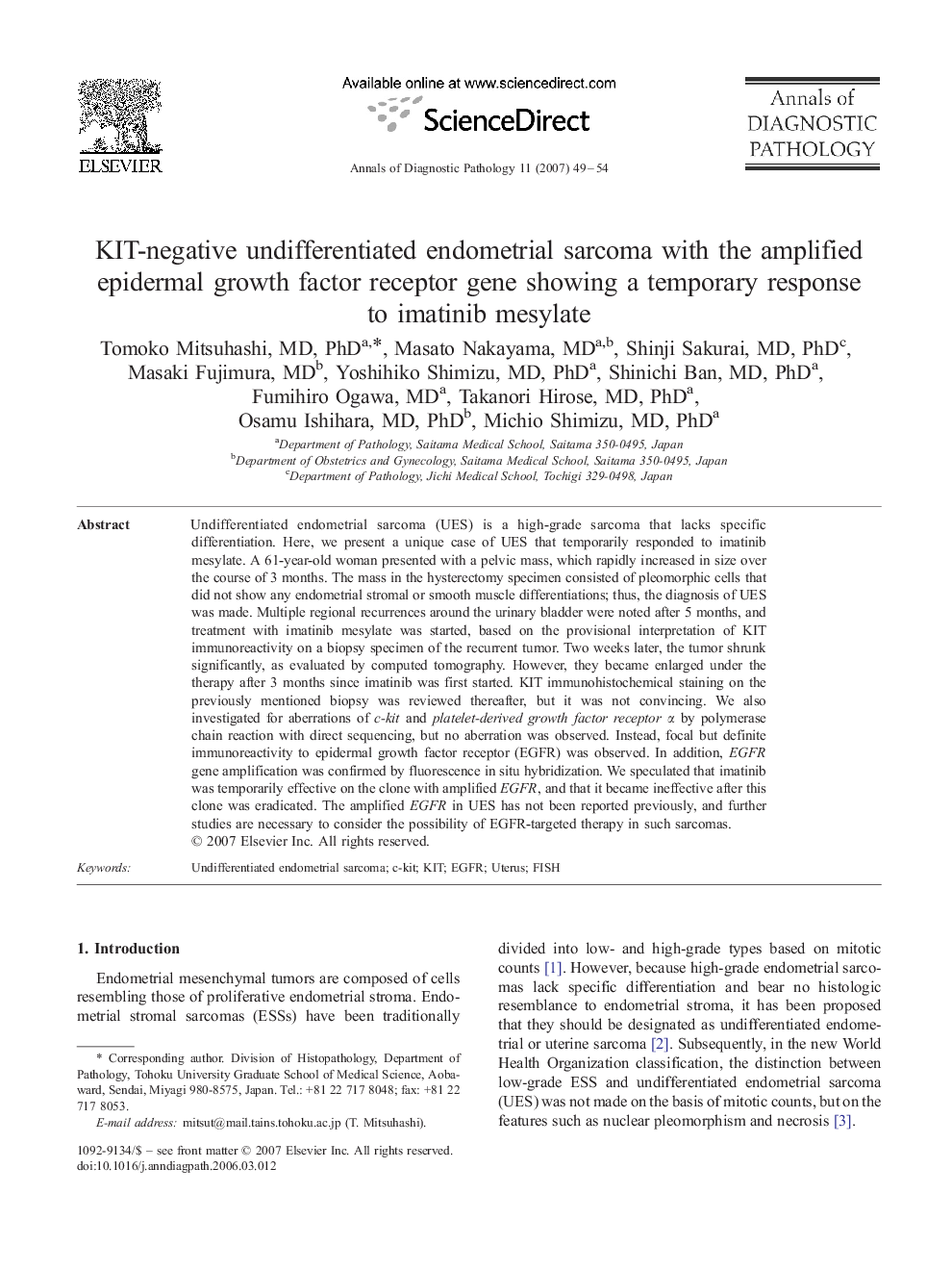| Article ID | Journal | Published Year | Pages | File Type |
|---|---|---|---|---|
| 4130621 | Annals of Diagnostic Pathology | 2007 | 6 Pages |
Undifferentiated endometrial sarcoma (UES) is a high-grade sarcoma that lacks specific differentiation. Here, we present a unique case of UES that temporarily responded to imatinib mesylate. A 61-year-old woman presented with a pelvic mass, which rapidly increased in size over the course of 3 months. The mass in the hysterectomy specimen consisted of pleomorphic cells that did not show any endometrial stromal or smooth muscle differentiations; thus, the diagnosis of UES was made. Multiple regional recurrences around the urinary bladder were noted after 5 months, and treatment with imatinib mesylate was started, based on the provisional interpretation of KIT immunoreactivity on a biopsy specimen of the recurrent tumor. Two weeks later, the tumor shrunk significantly, as evaluated by computed tomography. However, they became enlarged under the therapy after 3 months since imatinib was first started. KIT immunohistochemical staining on the previously mentioned biopsy was reviewed thereafter, but it was not convincing. We also investigated for aberrations of c-kit and platelet-derived growth factor receptor α by polymerase chain reaction with direct sequencing, but no aberration was observed. Instead, focal but definite immunoreactivity to epidermal growth factor receptor (EGFR) was observed. In addition, EGFR gene amplification was confirmed by fluorescence in situ hybridization. We speculated that imatinib was temporarily effective on the clone with amplified EGFR, and that it became ineffective after this clone was eradicated. The amplified EGFR in UES has not been reported previously, and further studies are necessary to consider the possibility of EGFR-targeted therapy in such sarcomas.
